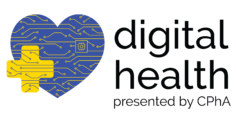Digital Health Corner Editor: Parisa Vatanka, PharmD, CTTS
 The COVID-19 pandemic we are currently facing is a wakeup call for the entire healthcare industry. How is it that with the tremendous medical advances and technologies that have emerged, we are still practicing sick care? Around the globe, waiting rooms in hospitals are overwhelmed, becoming incubation hubs for infectious diseases like the one we face today.(1) During a crisis, weaknesses in a system are often unveiled and amplified, and right now, patients are struggling with access to needed care, yielding significant health and economic challenges.
The COVID-19 pandemic we are currently facing is a wakeup call for the entire healthcare industry. How is it that with the tremendous medical advances and technologies that have emerged, we are still practicing sick care? Around the globe, waiting rooms in hospitals are overwhelmed, becoming incubation hubs for infectious diseases like the one we face today.(1) During a crisis, weaknesses in a system are often unveiled and amplified, and right now, patients are struggling with access to needed care, yielding significant health and economic challenges.
When we look to the current healthcare system, the advanced technology we have has not yet been optimized to realize its full potential. Integration, awareness, and usability have been modest. For example, we have a wealth of data, but if we are not turning that data into knowledge, knowledge into action, we are not recognizing its immense capability to create efficiencies and improve quality and outcomes of care. With COVID-19, however, we may have reached an inflection point, as this era is catalyzing digital health integration like never before to address urgent needs. Already, we are seeing medical clinics increasingly adopt telehealth/virtual care visits and regulatory bodies have allowed emergency use authorization for select digital therapeutics to address gaps in care. The time to pivot to new innovative solutions that meet the needs of the broader population is now.
COVID-19 has undoubtedly changed our lives. In an article from the UX Magazine, Ayyar describes how “in a world where we have no control over the pandemic and basic human needs of safety, social belonging, and financial security are threatened […] success is measured by how we ease the human experience of this crisis, making human-centered approaches to problem solving all the more relevant.”(2) We are all intimately connected in any patient journey, which makes each of us important stakeholders, along with our patients and their caregivers, in contributing to the design of technology solutions. User-centered design is an approach that involves a deep understanding of user needs so that the end product or service is truly engaging and actionable. Although not immediately apparent, our health is not solely influenced by internal physiology; rather, it includes psychological, social, and economic factors, and user-centered design accounts for all of these elements.
Keeping user-centered design top of mind forces us to create solutions that are agile and adaptable, and that is what we need to transform our current sick care model to one that truly represents health care. In Dr. Shafi Ahmed’s words, the COVID-19 pandemic has given us a new starting point.(3) We have had a glimpse into how technology upholds the delivery of care when traditional means are not possible. Will the new normal be a hybrid model of in-person and telehealth visits? Are we ready to fully integrate digital health products into the care continuum? We are already in the midst of re-designing the future of healthcare, we cannot turn back now.
References
- https://www.youtube.com/watch?v=12tGcjC7nWU&list=PLz-xaNyC9s_pNVok3fFcuLQjFZDXP7KX4&index=3
- https://uxmag.com/articles/covid-19-5-human-centered-design-principles-to-guide-leaders-in-a-crisis
- https://www.youtube.com/watch?v=iNC-29U3-S8
About the Author
Christy Cheung, PharmD, is a Medical Science Liaison, Neurology at Sanofi Genzyme and founder of the Think Digital Health blog. She graduated from the University of British Columbia in Canada in 2019 and completed a Medical Affairs Fellowship at Sanofi Genzyme (2019-2020). As a student and digital health enthusiast, she attended a number of healthcare hackathons, which fueled her passion in this area and led to the creation of her blog. She has been a guest on podcast episodes such as Pharmacy, IT, & Me, and recently became a contributor for the Pharmacy Informatics Academy. She also co-developed the “Roadmap to Learning AI for Healthcare” series and hopes to increase awareness of digital health within the profession.

